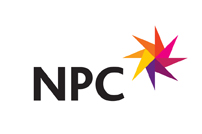The public has delivered a damning verdict on the government’s flagship levelling up policy to tackle regional inequality.
A survey by Ipsos found that only a third (34%) think levelling up will reduce inequality in their area within the next 20 years, while more than half (54%) think the policy will fail.
Four in five think the government does not care about their local area.
Instead, almost two thirds want to see their local council given greater control over public spending.
Public concerns around levelling up come as charity sector leaders warn that more flexible funding options, including blended finance that offers loans and grants, is needed for charities to be able to effectively help improve outcomes for people living in the UK's most deprived areas through the agenda.
Earlier this summer a report by New Philanthropy Capital commissioned by the government warned that offering charities loans without a grant element “would have a short-and long term negative effect” on charities and their beneficiaries.
“Blended finance can support the government’s levelling up agenda by targeting funds towards left-behind communities and enabling organisations in those areas to grow, employ more people, and help more people,” it added.
Ipsos’s survey showed that residents in Wales, Northern Ireland and the North of England feel particularly left behind when it comes to government spending and that inequalities are “feel strongest away from the South East of England”.
Public priorities for levelling up
Among the government’s aims for the levelling up agenda, tackling crime and anti-social behaviour was named as the top priority among the public.
Also backed is improving mental health, increasing local wages and job opportunities and improving public transport.
The issues to receive the lowest support is reducing gaps in life expectancy, improving internet coverage, and improving the quality of rented accommodation.
Increasing local people’s engagement in local culture and the community also ranks low in the public’s list of priorities for levelling up.
The survey findings have been revealed as part of Ipsos’ newly created Levelling Up Index, which will be released regularly to track public sentiment to the agenda.
“Our new Levelling Up Index confirms that regional inequalities are keenly felt by the public across a range of missions and provides an important baseline for the incoming Prime Minister to show progress in reversing public perceptions – particularly around pay, employment and productivity; skills training; and feelings of pride and place,” said Ipsos UK Public Affairs managing director Trinh Tu.
"Expectations that the government’s levelling up will make a difference to local areas are, however, low and the new Prime Minister must somehow convince the public that the government, under their leadership, cares about their local areas and can be trusted to deliver on the opportunities promised."
Latest News
-
Government ‘slow to tweak’ consumer law to protect charities, MP warns
-
2025: The long-reads
-
City of Culture charity to be supported for further two years
-
Friday funding roundup - 19 December
-
King visits charity founder days before she dies to invest her as a Dame
-
2025: Most-read opinion, diaries, Q&As and more
Charity Times video Q&A: In conversation with Hilda Hayo, CEO of Dementia UK
Charity Times editor, Lauren Weymouth, is joined by Dementia UK CEO, Hilda Hayo to discuss why the charity receives such high workplace satisfaction results, what a positive working culture looks like and the importance of lived experience among staff. The pair talk about challenges facing the charity, the impact felt by the pandemic and how it's striving to overcome obstacles and continue to be a highly impactful organisation for anybody affected by dementia.
Charity Times Awards 2023
Mitigating risk and reducing claims

The cost-of-living crisis is impacting charities in a number of ways, including the risks they take. Endsleigh Insurance’s* senior risk management consultant Scott Crichton joins Charity Times to discuss the ramifications of prioritising certain types of risk over others, the financial implications risk can have if not managed properly, and tips for charities to help manage those risks.
* Coming soon… Howden, the new name for Endsleigh.
* Coming soon… Howden, the new name for Endsleigh.
Better Society

© 2021 Perspective Publishing Privacy & Cookies











Recent Stories